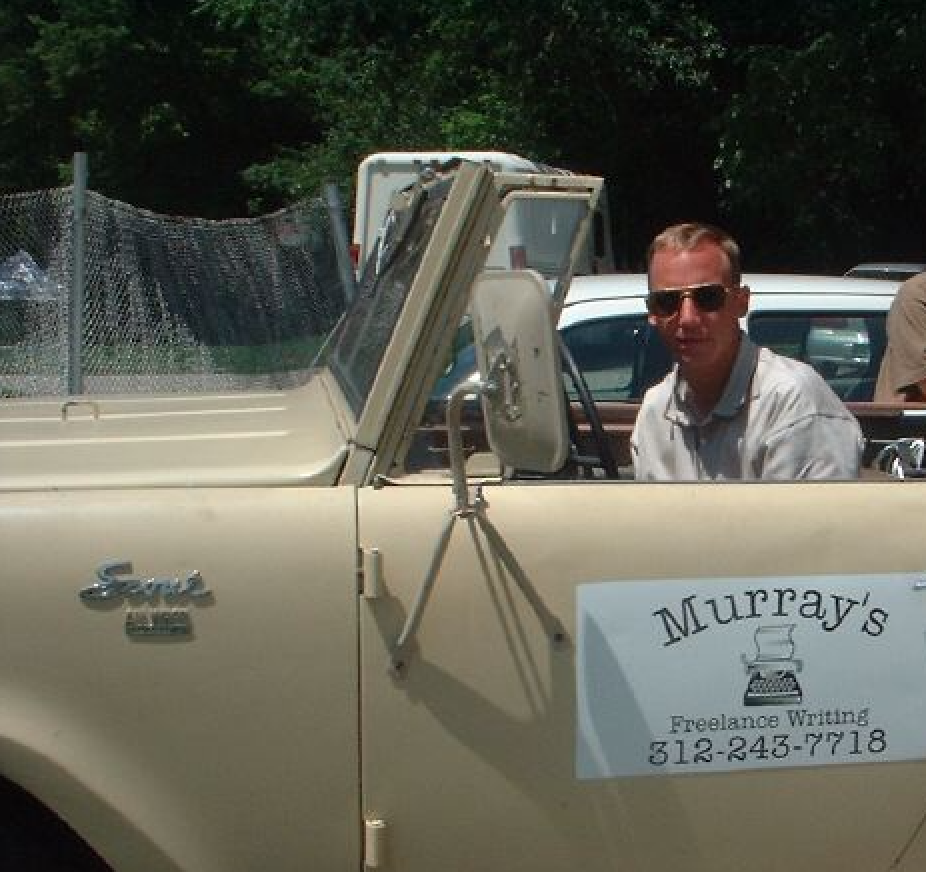Yesterday in my review of Obama chief speechwriter Cody Keenan’s memoir, I talked about the sense of romance that most young writers bring to the job.
I think that disappears in the course of a good writing career.
When you’re young, you want to “be a writer.” You want to tell people how they ought to think. You want to “change the world.” And you want to look cool doing it.
When I was a very young writer—that is, when I had decided to become a writer, but had not yet acquired an inkling about what I might write about—I read a book that I think was called “Writers on Writing.”
It was a series of interviews with then-prominent writers—Ellen Goodman, Kurt Vonnegut and Ray Bradbury are three that I remember—talking about how they write. But it’s hard to talk about how you write. So mostly, they talked about where they wrote, and what time. I was fascinated by all that—and, by photographs of the writers in their offices. The book cases, the desks, the notebooks and the typewriters. When you’re not a writer, or not a writer yet, all those things seem very important—not just to a writer’s style, but to the substance, too.
I’ve indulged in this nonsense further into my writing career than I’d like you to know—from the expensive Expresso writing pens I used to write poems in college notebooks, to the 1923 Underwood typewriter I used to write letters in my twenties, to the International Harvester Scout “service truck” I drove in my freelance journalist thirties.

But none of that stuff ever did any good for the work itself—it just made the whole enterprise seem a little sexier (likely to no one but me).
Some years ago, I wrote a piece titled, “Once in a Million Words, a Romantic Writing Moment.” It was about the two times I could remember in my whole writing career where the writing setting seemed to have some relationship with the product. Once, I wrote an important article in my head on a midnight motorcycle ride home from the Republican National Convention. The only other time:
On a hot June night in New York City, I stormed home from the first night of the conference of a communication association whose absurd governance behavior was humiliating the profession it represented. The conference was in Midtown, my hotel was downtown—my usual New York digs, the Jane Hotel, where survivors of the Titanic stayed while waiting to be interviewed by accident investigators, and must have remarked even then about the tiny rooms.
Sweat-soaked, I walked into the bar at the Jane, where I ordered a double Johnny Walker Black and glass of water, for the writing.
Those thirty dollars of goods in my hands, I rode the tiny elevator up to my room, which was not much bigger, and did not have a desk. I opened my laptop on the window ledge, not noticing that there was a window-unit air conditioner immediately above my head, which would have obviated my need to strip off all my clothes and to write my article dripping, naked and standing. Dripping, naked, standing and drinking. Dripping, naked, standing, drinking and writing, fast and accurately, an article that also showed, through five videos I’d shot and edited, the foolishness that my prose described.
And that’s it. The rest of the millions of words I have published have been written in my office or in my late father’s armchair or on the back porch or in a hotel room. I don’t remember, because it doesn’t matter to me now—because it didn’t have any effect on the writing.
The words have been written with birds chirping, sirens wailing, garbage trucks growling and Wolf Blitzing. (These are being written with a some kind of goddamn cement saw screaming away through my closed office window. It doesn’t matter.)
They have been written over-caffeinated, clear-headed, hungover, buzzed and occasionally bored. It doesn’t matter. (Leonard Cohen once sobbed in his underwear on a hotel room floor, trying to write “Hallelujah.” That doesn’t matter.)
Some of the three million words have flowed onto the page; others have had to be arranged and rearranged a dozen times. It doesn’t matter.
What matters is that I’ve figured out a way to finish just about every piece of writing I’ve started, an I’ve never (ever) had to write to an editor or a client, “Sorry, I need more time.”
What matters is whatever my writing does for whoever who reads it—two factors I can’t control and will in most cases never know about. (I love the not knowing.)
And what matters most is whatever my writing does for me, which I’m only clumsily and feebly able to articulate on the rare occasions I’m asked. A Chicago journalist told me the other day that he felt that living life without a regular writing outlet “was like drowning. Not in an abstract way, but like someone holding my head under the water and killing me.” That sounded about right.
Last week at his Fuller Award acceptance speech, Rick Kogan asked a roomful of writers and other artists to ask ourselves, “Why do we do what we do?”
If you do it long enough, you don’t even know why you do it anymore.
You just do.
Leave a Reply